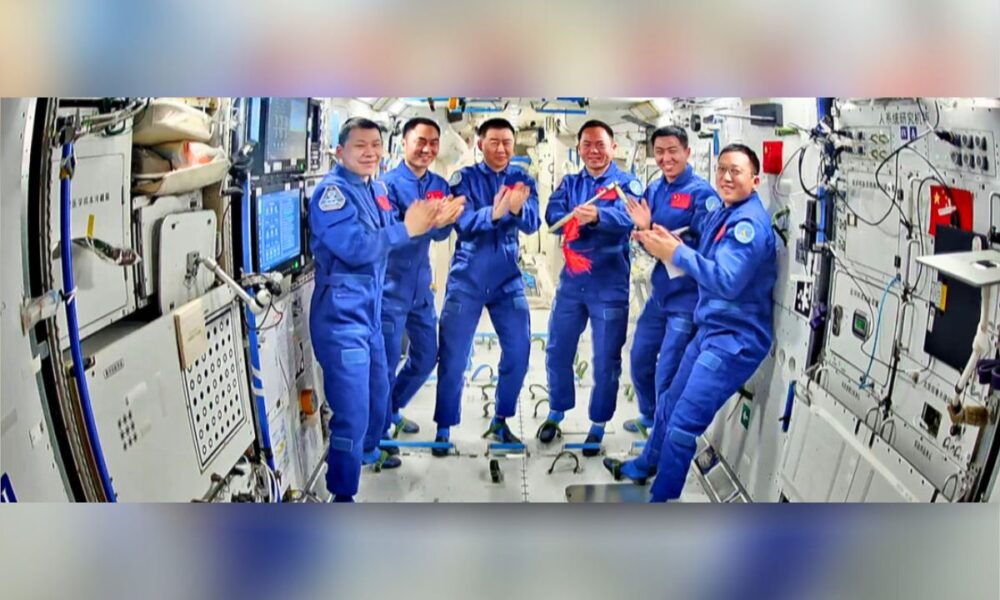A crew of three Chinese astronauts was set to leave the Tiangong space station and return to Earth on Wednesday, but was ordered to remain put due to potential damage to their landing craft.
According to the China Manned Space Agency, which is run by the country’s military, the change, announced late Tuesday, was attributed to “space debris,” as reported by Ars Technica.
“The Shenzhou 20 manned spacecraft is suspected of being impacted by small space debris… Impact analysis and risk assessment are underway. To ensure the safety and health of the astronauts and the complete success of the mission, it has been decided that the Shenzhou 20 return mission, originally scheduled for November 5, will be postponed.”
The crew has been aboard the Tiangong Station since their arrival in April. On Friday, their replacements arrived on board the Shenzhou 21, bringing the total crew size to six people. Despite a handover ceremony taking place on early Tuesday, Chinese officials decided to pause the departure less than 24 hours later.
Exact details remain scarce. The China Manned Space Agency did not say what part of the craft was damaged, why they suspect space debris was responsible, or how long they expect the departure to be postponed.
China has not disclosed any significant issues during the space missions to the Tangong space station, which initially began back in 2021. Officials were aware of the risk of space junk, and the four spacewalks undertaken by the Shenzhou 20 crew were all focused on enhancing the space station’s defenses against potential strikes from debris.
In 2023, the station lost partial power after a piece of space junk struck one of its solar panels, requiring several spacewalks to repair it last year. The incident prompted a slew of spacewalks to increase the station’s shielding.
In 2021, the U.S. and Russian-led International Space Station’s Canadian-built robotic arm was hit by a piece of space junk just one millimetre in size. While the hit did not affect performance, the tiny object was able to punch a hole directly through the arm.


